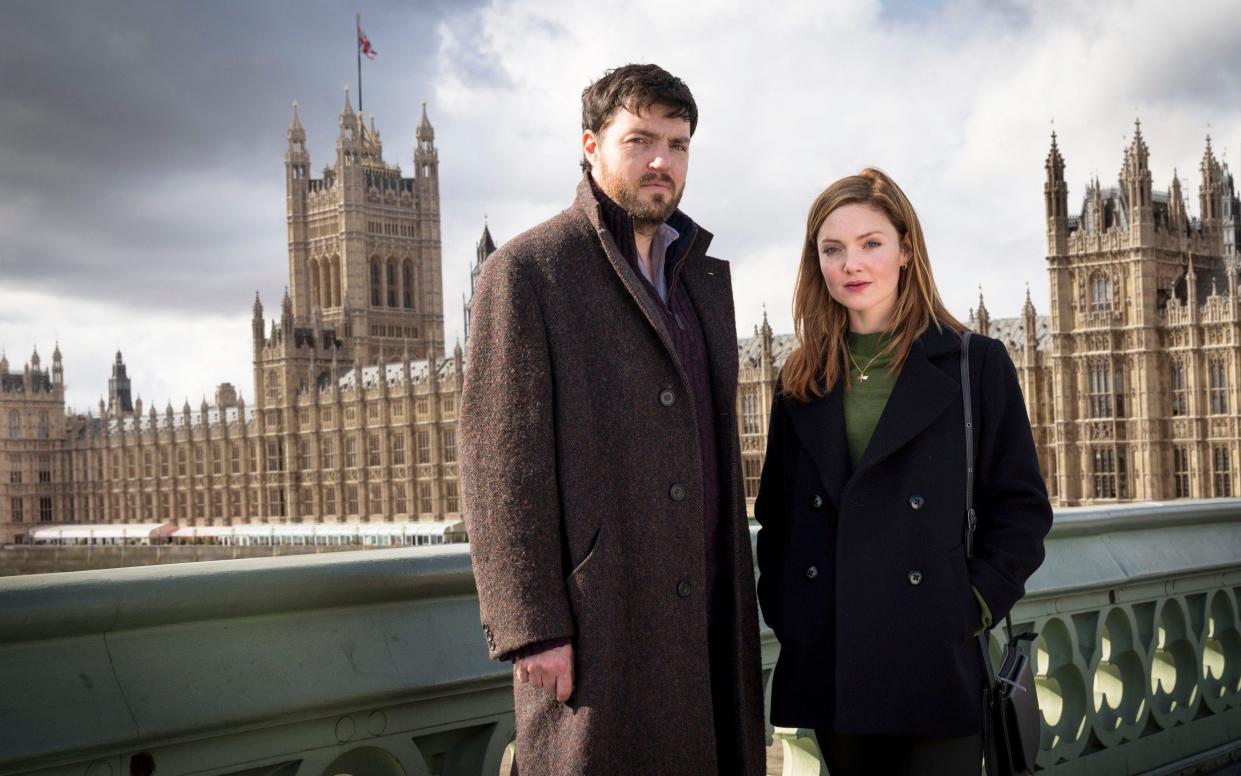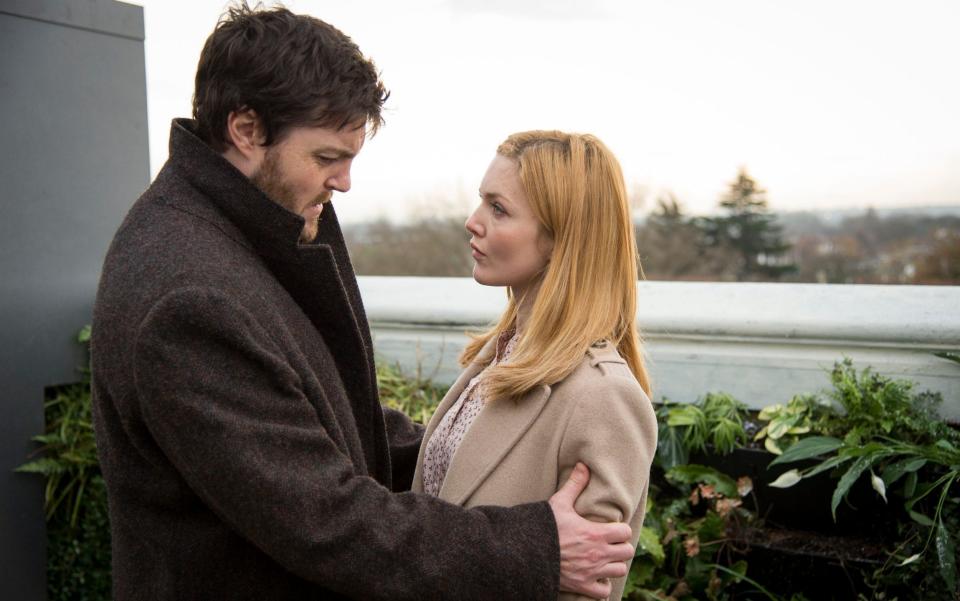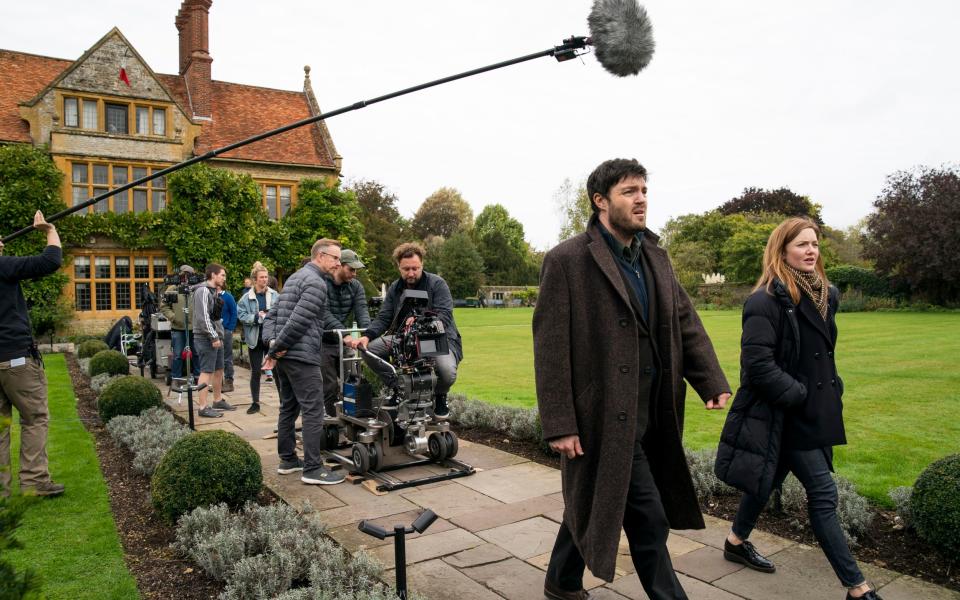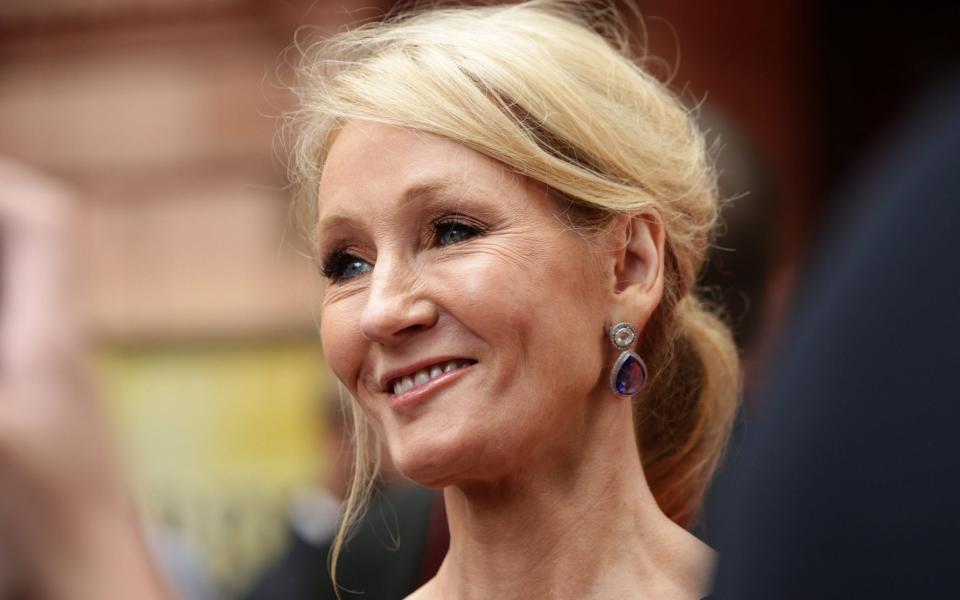Tom Burke and Holliday Grainger interview: ‘There’s a slow-burn mystery between Strike and Robin’

If a cliffhanger can be sustained for two-and-a-half years, then the last series of BBC One’s Strike ended on a cliffhanger.
It was back in March 2018, aeons ago in TV time, that we saw Cormoran Strike (Tom Burke), the grizzled detective, burst into a church only to find his assistant Robin (Holliday Grainger) saying, “I do” to her controlling fiancé Matthew. Hearts sank – Strike-and-Robin is the knottiest will-they-won’t-they currently on television. But then hearts soared – Robin was looking at Strike as she said it, with a glance that spoke volumes. Then the titles rolled.
The new series has taken this long because, firstly, JK Rowling, under the pseudonym Robert Galbraith, had to write the next book. Then, when it emerged at a hefty 784 pages, the writer Tom Edge had to adapt it for television. The result, finally, is four hour-long episodes that will play out over the August Bank Holiday weekend. It’s a bigger dose of Strike – previous series have been two or three episodes long. But that, Tom Burke says, is what the viewers asked for.
“The feedback from people was, ‘We would quite happily watch a lot more’,” he says.
Burke, who plays Strike as a sort of ale-swilling amalgam of Philip Marlowe and Ross Kemp, says that, for him, the gaps in production are part of its appeal.
“One of the nice things about it is it doesn’t feel like a machine. We wait for Jo [Rowling] to write the next book and it happens in its own time. We might do three episodes next time or we might do five. But it’s not going to do a Game of Thrones and diverge from the books.”
This time Rowling and Edge have taken a pair of seemingly disparate cases and then, following the classic noir trope, woven them together. In the first, Strike and Robin are hired by a fusty Tory MP called Jasper Chiswell (Robert Glenister) who is being blackmailed. Their task is to dig up dirt that Chiswell can then use against his blackmailers, but the case soon turns in to a murder investigation. At the other end of the political spectrum, a young man in the grips of psychosis turns up at the office telling the story of a child he saw strangled many years ago. Then he disappears. The young man’s brother turns out to be a hard-Left firebrand who is connected to one Jasper Chiswell.
The mystery plays out as a whodunit, a who-else-was-involved, and a who-paid-whom-to-do-it. But beneath the byzantine plot, the more enticing thriller, as Tom Burke puts it, “is the slow-burn – really slow-burn – mystery that’s cooking away between Strike and Robin.” Rowling has said she is planning at least three further Strike books, and she has proved remarkably adept at keeping her star-crossed lovers apart.
“There’s always someone else in the way,” says Holliday Grainger. “In this one, Robin’s married; Strike’s got a girlfriend; there are text messages between them that for one reason or another don’t get answered…”
The audience, one suspects, prefer it that way. Ratings for all seven episodes of the TV adaptation to date have been strong, at around eight million. Why spoil it all by having Strike and Robin turn into Hart to Hart?
“I can imagine them [Robin and Strike] together, but whether that would sustain as an interesting thing for an audience?” says Burke. “Probably not.”

Still, the string-along-a-romance wouldn’t work either if Burke and Grainger didn’t splice so well on screen. Interviewed together, Burke describes their working relationship as “terrible,” while Grainger says, tongue-in-cheek, she finds her co-star “immensely annoying”.
“We’re both a quite similar balance of fun and, er, focus,” says Burke, in a way that makes it impossible to tell if he’s joking.
The “focus” part, I suspect, is true. Burke has said how much his work affects him – after playing a manipulative heroin addict in last year’s underrated The Souvenir, he found himself constantly losing his temper, the character still seeping through him.
Conversely, he says he feels improved by playing the compassionate Strike. “I do feel a bit less blinkered when I’m playing him than I do when I’m playing other people. I feel much more aware of anybody in the crew or cast who might be having a fragile time.
“I don’t think I realised that’s what was happening when I played him before. I remained in remarkably good spirits for the whole shoot. I was like, ‘Oh my God!, I’m a spiritual giant!’ Then I went on to something else and was back in a slightly nervy place.”

Grainger is less intense but no less engaged. After being assaulted towards the end of the last series, Career of Evil, her character now has to live with PTSD and panic attacks.
“I spoke to a couple of psychotherapists about the theoretical process of panic attacks,” Grainger says. “But then I also spoke to friends [who’ve experienced panic attacks] just to ask them, ‘What do you actually find yourself doing. What do you actually… look like?’
“It’s not pleasant to do, though. If you’re pretending to hyperventilate, you have to actually hyperventilate and it puts your body in a fight-or-flight response which makes you feel really panicked. I would come away with bad tension headaches at the end of the day just from doing it.”
Has she suffered from anxiety herself?
“Anyone who’s reached their 30s and has never experienced any sort of anxiety is f---ing lucky. I definitely think it’s something that gets worse as you get older. I’m not going to say that I’ve ever experienced anxiety as much as Robin, but I can definitely understand where the process might begin.”
When the Strike series was first published and the identity of its author unmasked there was much conjecture as to whether Robin was a cipher for Rowling herself. Like Robin, the author had a difficult first marriage and, earlier this year, revealed that she was a survivor of domestic abuse and sexual assault.
“Jo never said that Robin was a version of her to me,” says Grainger. “Someone else said that they’d got that impression. I’ve never asked Jo that directly, but we all write from our own experiences in some kind of way.”

Both Burke and Grainger say that they talk to Rowling about the characters and the books – Rowling was on the set to film Robin’s wedding scene, Grainger says – but other than Burke noting that “Jo’s quite a prolific tweeter when it comes to politics”, neither of them will talk about Rowling’s recent battles with trans rights activists on Twitter.
Still, there is a sense that Strike, over the course of four novels, and now seven hours of television, is becoming as much about Robin as it is about her boss.
“Robin’s gone on a more contrasting journey than Strike,” says Grainger. “There’s a solidity to Strike. Of course he goes through fluctuations, things happen and there are various girlfriends, but he’s essentially the same person in the same place as when we began the books. Whereas I think Robin is going through some pretty big life decisions. She’s changing with the job and through the books.”
The big mystery, in other words, is: what person will Robin become? The next book, Troubled Blood, comes out a fortnight after this latest TV adaptation. Let’s hope, Covid-permitting, we won’t have to wait another two-and-a-half years to watch it on screen.
Strike: Lethal White begins on BBC One on August 30 at 9pm

